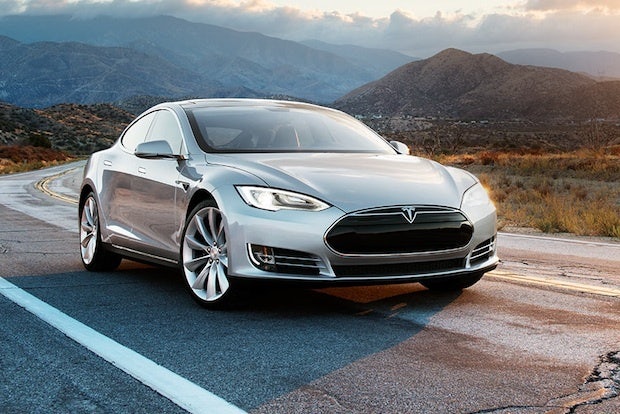
The Tesla Model S. (Tesla)
This summer, China’s state-sponsored media went on a significant negative PR offensive against foreign auto brands for their pricing policies on imported models, accusing the companies of gouging customers in China. It’s certainly an easy target—the prices of foreign models can be over three times higher in China than they are in their home countries—but foreign brands maintain that they have no choice with the high tariffs set by the government.
Throwing a wrench in this argument was luxury electric automaker Tesla, which released an announcement yesterday stating that the Tesla Model S will be sold in China for the price it is in the United States before taxes. According to the company:
This pricing structure is something of a risk for Tesla, but we want to do the right thing for Chinese consumers. If we were to follow standard industry practice, we could get away with charging twice as much for the Model S in China as we do in the US. But we're doing things differently, even if it means that some people might look at the price and mistakenly think it must somehow mean the Model S has less value than its competitors.
The Tesla Model S will go for RMB734,000, or about US$121,280. This makes the final car price about 50 percent more expensive than in the United States, but the only charges above the U.S. price of $81,070 are due to “taxes, customs duties, and transportation costs.” The brand breaks down the amount to US$3,600 for shipping, US$19,000 for customs and taxes, and US$17,700 for VAT.
While other luxury auto companies under attack for high costs have jumped on the same argument that tariffs give them no choice but to raise their prices, the increase is typically much higher than Tesla’s. For example, a BMW 650i sedan that goes for US$91,000 in Germany can sell for RMB2 million (US$326,000) in China.
These arguments may still have some justification: as an electric car, Tesla probably gets some tax relief even though it’s imported. That’s because in addition to a 25 percent CIF (custom, insurance, and freight) tax and 17 percent value-added tax, China also has a consumption tax ranging from 1 to 40 percent based on engine size. On top of that, companies also often claim that the cost of shipping can account for 25 to 40 percent of the price hike, and that the cost of setting up dealerships requires them to add 30 to 40 percent more.
Tesla argues that this is a faulty argument, bluntly stating, “the real reason their car costs more is that they make double the profit per car in China compared to the United States or Europe.”
The electric automaker may have determined that a lower price point may help it compete with China luxury stalwarts such as BMW and Audi despite the possible inconveniences of driving an electric car. The brand is going to have to set up a network of charging stations in the country—a daunting and expensive task that probably could have justified a higher price in terms of sheer cost. When the first Chinese customer paid around $410,000 for a Tesla Model S, it seemed as though Tesla planned to rely on a pricing model similar to other luxury car companies, but it now appears that it hopes economic incentives will be a stronger selling point than its luxury status.
It's not likely that other foreign car companies will feel compelled to dramatically lower their China prices in response to Tesla's decision. Foreign luxury automakers haven’t been hurting too much from the state media attacks: Daimler, Volkswagen, and BMW all saw significant China growth in 2013, especially in their mass luxury divisions. Consumer response to the media offensive turned into critiques of domestic auto companies, saying that foreign car brands’ superior quality was worth the price. If Tesla is able to find a niche in this market and build its infrastructure quickly, it can also grab a piece of this growth.